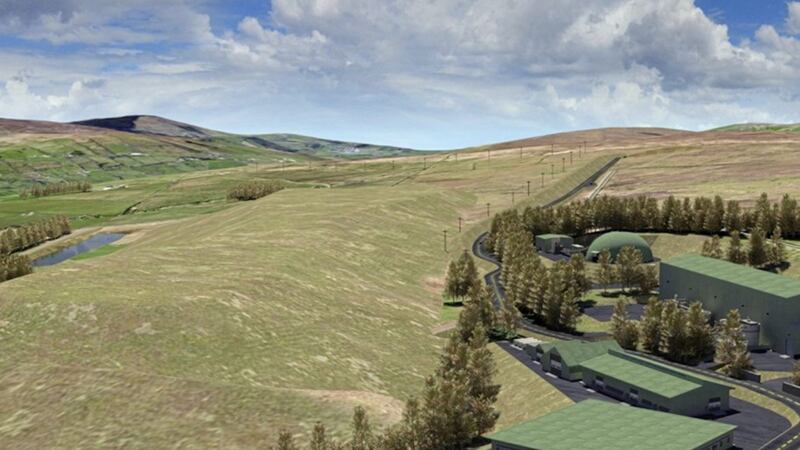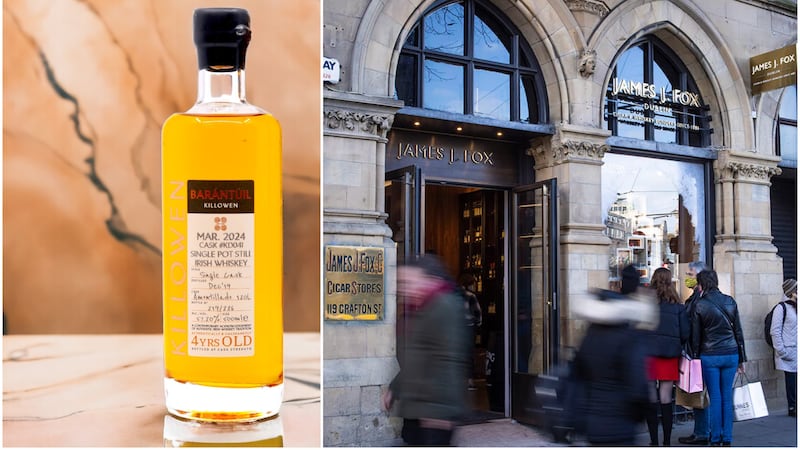THE Canadian developer behind a controversial Co Tyrone gold mine has said the project could create jobs for decades beyond its 25-year lifespan after confirmation of a major increase in high grade deposit at the site
Dalradian, behind the planned £750 million development at Curraghinalt in west Tyrone, has said there has been a major uplift in the amount of gold at the mine.
The updated mineral resource statement, prepared by independent geological experts states that the quantity of very high quality ore contained within the Curraghinalt deposit has risen from 4.4 million ounces to 6.1 million ounces.
The geological study also reports an overall increase of 22 per cent in the average grade of the deposit to 12.24 grams per tonne, which is about 10 times the average grade of gold currently being mined around the world.
The enhanced grading of the deposit now places Curraghinalt in the top 10 percent of unmined gold deposits in the world and the developer has said that due to the increase in gold deposit at the site, the operation could now generate a second phase, beyond the initial projected 25-year lifespan of the mine, providing jobs for decades more than initially foreseen.
Dalradian has been operating in Northern Ireland since 2009 and currently employs more than 80 people directly and through contracting of local services.
Its president and chief executive Patrick Anderson said the updated results are further proof of the potential to create a world-class underground gold mine in Northern Ireland, supporting hundreds of jobs.
"Since we took over the project almost a decade ago we have transformed it from an early stage deposit to one of the best gold projects in the planet, currently ranked in the top 10 per cent of unmined gold deposits in the world," he said.
"A 2016 feasibility study showed that 350 full-time jobs with average salaries of £40,000 will be created at our project should we be granted planning permission.
"This latest resource report adds to the economic case for our project and will form the basis for a new feasibility study which we expect to release by the end of 2018.
"Given the higher number of gold ounces that can potentially go into the mine plan now, we expect to deliver a substantial improvement to the already strong economics of the project," he added.
Stephen Kelly of Manufacturing NI said the updated gold deposit is "great news" for the Northern Ireland economy.
"This project will create hundreds of new, well-paid jobs both in the mine itself and across its supply chain. The news is particularly welcome for an area of high unemployment such as west Tyrone since the mine will provide extensive training and introduce new skill sets into the area."
Dalradian submitted a planning application to the Department for Infrastructure for the gold mine in November, and at the time stated the mine would create 350 full-time jobs and hundreds more as a result of the development.
The company has previously said that $1 billion (£750 million) is to be spent building and operating the mine over the lifetime of the project (25 years).
The proposed gold mine has been met with heavy opposition from those within the local community and earlier this year a resident's group secured permission to mount a High Court challenge against the development.
The challenge centres on a proposal to construct a processing plant and waste storage facility on the area known as Crockanboy Hill, with environmental concerns over the use of cyanide to remove the metal from the ore.
Lawyers representing the Greencastle, Rouskey and Gortin Concerned Community (GRG) claimed it was the first case of its kind, with the potential to halt the gold mine.
The legal challenge had been due to be heard in June, but was put back until after the summer.








